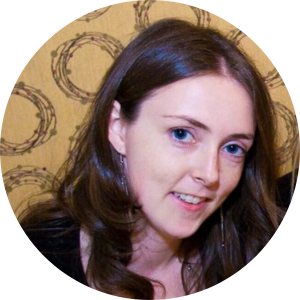
A guide to buying your first home in Canada
GBJSTOCK / Shutterstock
Buying your first home can be a bit daunting and you may not be sure of where to start. Read our step-by-step guide about buying a house in Canada.
Across Canada, money-savvy millennials are taking the plunge into homeownership, knowing that it’s one of the best long-term investments that they can make.
Whether you’re buying a house, condo, or townhome, the process can be a bit daunting and you may not be sure of where to start. Read our step-by-step guide about how to buy your first home in Canada, so you can close with confidence.
Search 30+ mortgage lenders and get great rates with BreezefulSave for a down payment and other expenses
Before you start shopping for real estate, your first step is to save up money for a down payment. A “down payment” is the amount of money that you put towards the purchase of a home. In general, the larger your down payment, the easier it is to obtain a mortgage.
How can you save for a down payment? Start by opening a high-interest savings account and setting up an automated savings plan. The EQ Bank Savings Plus Account is an excellent choice with an everyday interest rate of 2.50%*, no fees, and no minimum balance.
As you start saving, you might ask: how much do I need to save for a down payment? The minimum amount depends on the home’s purchase price. In Canada, people typically spend between 5% and 20% of the purchase price on a down payment.
Another reason to beef up your down payment? To avoid paying the Canada Mortgage and Housing Corporation (CMHC) mortgage default insurance. This hefty expense, calculated based on the size of the mortgage and down payment, is designed to protect the lender, and typically can only be foregone with a down payment of 20% or more. So start saving now!
Save for closing costs
While saving for a down payment should be a top priority, put aside some money (generally 1.5 to 4% of the home purchase price) to cover future closing costs.
These are legal and administrative fees paid at the closing of a real estate transaction and generally range from 1.5% to 4% of the selling price. It’s important to save for these expenses in advance to buying a home, so you’re not in the red when it’s time to close on your home.
Closing costs may include:
This is not an exhaustive list—it doesn’t include property taxes or utility bills, for example—but it gives an idea of possible closing costs.
One savvy saving strategy is to set up a Tax-Free Savings Account (TFSA) to act as your “closing cost fund.” As the name suggests, there is no tax owed on the balance, interest, dividends, or capital gains—and it can be withdrawn tax-free.
The maximum amount in 2022 you can contribute to a TFSA saving or investing account is $6,000. You can see how this might be a great place to stash and grow your funds. At the same time, the money is easily cashed out if is needed for your closing costs. EQ Bank is one of the best banks in Canada and its TFSA Savings Account accrues interest at 3.00%*. Add in EQ Bank’s absence of fees and your savings will really accumulate quickly.
Start saving with EQ Bank* Interest is calculated daily on the total closing balance and paid monthly. Rates are per annum and subject to change without notice.
Prepare your finances
Get your finances in order before cruising the real estate listings. This process will help you estimate how much you can afford to buy, as well as organize critical documents required to support a mortgage application.
Check your credit score
A credit score is a rating (between 300 and 900) used by lenders to assess the amount of risk they face in extending credit to you. In general, the lower your score, the less likely you are to be approved for a loan. Checking your credit rating allows you to see where you fall on the scale and figure out how to improve your credit score before submitting a mortgage application.
If your score is lower than you’d like, there are actions you can take. Try Score-Up, the smart consultation software from MyMarble.ca. For a monthly subscription, Score-up will analyze your credit score and give you actionable tips on how to gain points, fast. They’ll help you see which bills to pay, when, and which services to cancel altogether, all in service of a better credit score. And unlike other credit monitoring services, they report to the credit bureaus so your good habits in paying their subscription are reflected in your rating. You can also access your credit report anytime using Score-Up.
Organize your documentation
There are three things a lender will look at before giving you a mortgage: your current assets (what you own), your income, and your current level of debt. During the application process, here are a few items that your mortgage lender may request from you:
- Government-issued photo identification (driver’s license, passport, etc.)
- Proof of employment and income (pay stubs, T4s, income tax returns, bank statements, etc.)
- Proof of a down payment and where it will come from (e.g. savings account, RRSP, the sale of another property, gift, etc.). If a family member is contributing towards your down payment, you will also need a signed letter from them acknowledging the purpose of the gift, and confirming that it is non-repayable.
- Information about any other assets
- Information about your debts (e.g. credit card balances, car loans or leases, lines of credit, student loans) or financial obligations (e.g. spousal/child support)
Having these documents handy is a house-hunting hack – it will ultimately prevent you from scrambling to get your act together at the last minute.
Get a mortgage pre-approval
With your finances in order, the next step is to figure out how much you can afford. A mortgage calculator is a good place to start, as you can factor in the amount of your down payment, your amortization (repayment) schedule, total selling price, and so forth to come up with a budget.
If you want something more official, go to a mortgage lender and get “pre-approved.” This means that a potential mortgage lender looks at your finances and determines how much money they will lend you and at what interest rate they will charge you.
It’s a bit of work, but pre-approval lets you:
- Know the maximum amount of a mortgage you could qualify for
- Estimate your mortgage payments
- Lock in an interest rate for 60 to 120 days, depending on the lender
A pre-approved is not mandatory—but it is strongly advised. A pre-approval determines the home price you can afford, which essentially sets your budget for house-hunting.
In fact, some real estate agents require it before they will work with you. Having pre-approval signals that you’re a serious and eligible buyer, as well as helps avoid the heartbreak of finding your dream home, only to realize it’s way out of your budget.
One caveat: a mortgage pre-approval does not guarantee financing, and when making an offer, it’s not necessarily “safe” to remove the financing condition.
Once your offer is accepted, you’ll need to go back to your mortgage lender to get the official stamp of approval.
Finding the best mortgage rate before buying your home
Since interest rates are constantly fluctuating, it’s important to shop around and find the most competitive mortgage rates. The process can be time-consuming, so we recommend using an online mortgage broker, like Breezeful, which can provide you with the most competitive rates from more than 30 lenders. Its online platform is very user friendly, and once you complete your application, you’ll get rates in just minutes. A mortgage expert will guide you through all the steps to get you the best mortgage for your needs. Even after you’ve secured a deal, you can still get help by sending your questions to an advisor through a dedicated text line.
Search 30+ mortgage lenders and get great rates with BreezefulTypes of mortgages
There’s no one type of mortgage that fits everyone. Your best bet is to shop around and pick something that works for your life circumstances and budget. Here’s a broad overview to help you decide the best option for you.
In Canada, mortgage repayment terms usually run between 5 and 30 years, with longer terms typically commanding higher interest rates.
Research first-time home buyer incentives
Speaking of saving money, don’t forget to take advantage of these first-time homebuyer incentives in Canada. It could save you some serious dough.
Start house-hunting!
You’ve got some money in the bank and a pre-approval in your hands. This is the exciting part of the home buying process – when you can start perusing the Canadian Multiple Listing Service (MLS) site in earnest.
Now hosted at Realtor.ca, this MLS provides a nationwide compilation of available real estate listings that you can filter in any number of ways: by location, size, type, amenities, price, and more.
If you aren’t sure whether a home you’re interested in is fairly priced or not, consider typing the address into Properly’s Instant Estimate tool. This tool is designed to give homeowners an accurate snapshot of their home’s value, but can also give buyers valuable insight into recent sales data for their ideal neighbourhood. Best of all, it’s free.
It’s at this stage that you’ll want to seriously consider working with a real estate agent. This is not mandatory—buyers are allowed to manage their own sale—but it’s advised, especially for first-timers.
Real estate agents have expert information on every step of the process which can help relieve stress, and they are also part of a professional network of inspectors, insurance agents, and so forth who may become part of your team.
Final words
Buying a first home can be a daunting experience for anyone. Long before the fun part—the actual search for your dream home—you have to figure out your finances, identify and exploit saving opportunities, get pre-approved for a mortgage, and hire your real estate agent, lawyer, and other professionals.
It might seem overwhelming, but for many millennials, it’s worth it to become a homeowner. If that’s you, this guide will help you get one step closer to having the keys to your new home in hand. Good luck!
If you liked this article, you may also like:
The best personal loan interest rates in Canada
The best bad credit loans in Canada

Lisa Jackson is a freelance personal finance and travel journalist, editor, and blogger who contributes to various online and print media outlets in Canada and abroad, including The Globe & Mail, Toronto Star, Islands Magazine, Fodors, BRIDES, Huffington Post Canada, CAA Magazine, The Food Network, West Jet Magazine, NUVO Magazine, and many others. When she's not writing from her home office, she's busy globe-trotting to new destinations in search of her next story.
Disclaimer
The content provided on Money.ca is information to help users become financially literate. It is neither tax nor legal advice, is not intended to be relied upon as a forecast, research or investment advice, and is not a recommendation, offer or solicitation to buy or sell any securities or to adopt any investment strategy. Tax, investment and all other decisions should be made, as appropriate, only with guidance from a qualified professional. We make no representation or warranty of any kind, either express or implied, with respect to the data provided, the timeliness thereof, the results to be obtained by the use thereof or any other matter. Advertisers are not responsible for the content of this site, including any editorials or reviews that may appear on this site. For complete and current information on any advertiser product, please visit their website.





